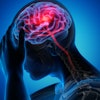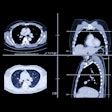Monday, November 26 | 3:30 p.m.-3:40 p.m. | SSE03-04 | Room N229
Researchers from Japan discovered that delayed contrast enhancement on CT was an independent predictor of major adverse cardiac events in patients with suspected coronary artery disease.Delayed-enhancement imaging has been used increasingly more often in recent years for the noninvasive assessment of myocardial fibrosis -- i.e., the abnormal thickening of heart valves -- and as a potential predictor of cardiac events and death, study co-author Dr. Kakuya Kitagawa, PhD, from Mie University Hospital told AuntMinnie.com.
Though the use of delayed contrast imaging has mostly been confined to MRI, advancements in CT technology have given rise to the use of myocardial CT delayed-enhancement (CTDE) for the detection and assessment of heart attacks, he said.
To see whether the technique could predict major adverse cardiac events, Kitagawa and colleagues evaluated the imaging data of 389 patients suspected of having coronary artery disease who underwent coronary CT angiography (CCTA) and CTDE at their institution. Approximately 19% of the patients' CT scans indicated delayed enhancement.
The presence of delayed enhancement on CT had a statistically significant association with all adverse cardiac events (p < 0.0001), the group found. In that vein, patients with delayed enhancement on CT had a statistically significant decrease in their chance for event-free survival.
"Given the high prevalence of delayed enhancement observed in our study, routine implementation of CTDE following CCTA may be justified," Kitagawa said. "Patients with delayed enhancement may benefit from more intensive medical therapy or revascularization."




















